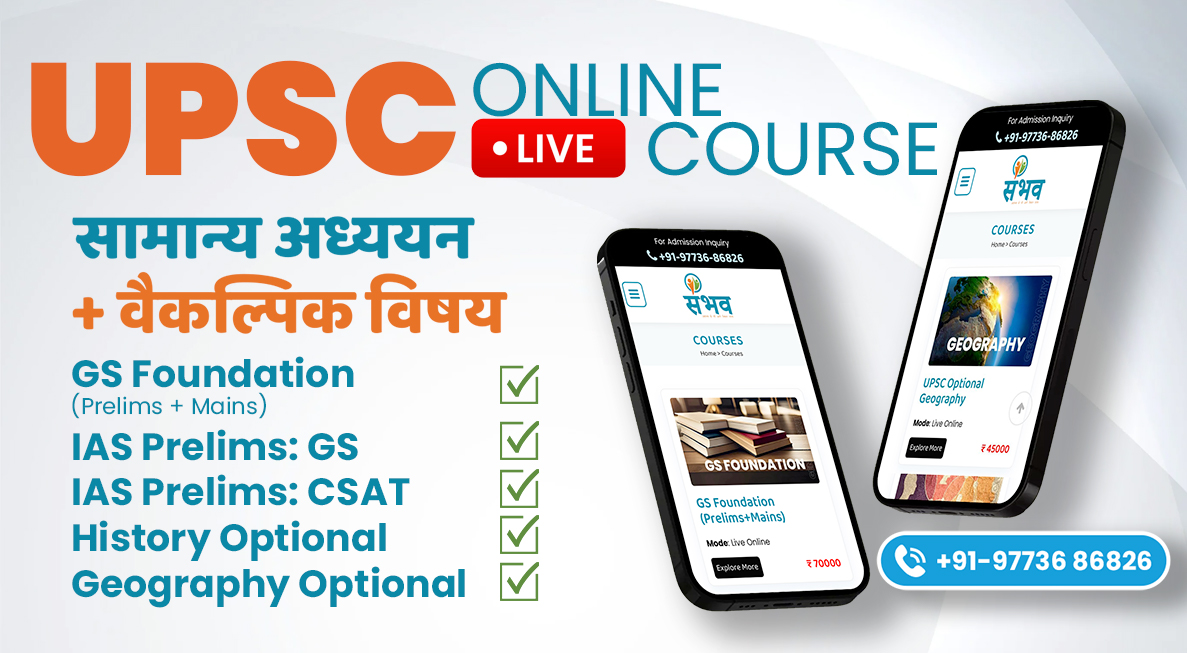UPSC Civil Services Exam concludes with the Personality Test, also known as the interview. It’s a crucial stage that assesses a candidate’s suitability for a career in civil service beyond just their academic knowledge.
Interview
UPSC – IAS Interview Details
Venue:
Union Public Service Commission (UPSC), Dholpur House, Shahjahan Road, New Delhi-110069
Timing:
Two sessions per day (Forenoon session 9:00 AM onwards, Afternoon session 1:00 PM onwards). It will be mentioned on the candidate’s call letter.
Dress Code: :
Men:
Suit: A well-fitting suit in a dark or neutral color is ideal. Navy blue, black, or charcoal grey are all safe choices.
Shirt: Opt for a light-colored, plain shirt. Ensure it’s ironed and fits well.
Trousers: Match your suit with dark-colored trousers.
Tie: While not mandatory, a tie can add a touch of formality. Choose a conservative pattern or solid color that complements your shirt and suit.
Shoes: Well-polished leather shoes in black or brown are recommended.
Hair: Keep your hair neat and tidy. Avoid overly long or styled hair.
Women:
Saree or Salwar Kameez: Formal sarees or salwar kameez in light, muted colors are most appropriate. Cotton or khadi fabrics are preferable.
Suit: A well-tailored pantsuit can also be a good option. Choose neutral colors and conservative styles.
Jewelry: Keep jewelry minimal and elegant. Avoid anything flashy or distracting.
Makeup: Minimal or no makeup is recommended. Opt for a professional look that keeps the focus on your qualifications.
Shoes: Opt for closed-toe shoes with heels of moderate height. Ensure they are comfortable for walking.
General Tips:
Cleanliness and Ironing: Make sure your clothes are clean, ironed, and wrinkle-free.
Fit: Clothes should fit well and be neither too tight nor too loose.
Overall Presentation: Project a neat, polished, and professional appearance.
Comfort: Choose clothes you feel comfortable in. You don’t want to be fidgeting or distracted by your attire during the interview.
Maximum Marks: 275 (it seems less when compared to Mains but scoring high marks here can be the path to one’s service/cadre of choice).
UPSC interview process
Here are the key takeaways:
The Interview Format: The UPSC interview is a discussion-style interaction lasting around 20 minutes. It assesses the candidate’s personality, knowledge, and suitability for civil service.
Before the Interview: Arrive early, carry proper identification, and be prepared to wait. The commission provides basic refreshments and newspapers.
Document Verification: There’s a security check and verification of your interview call letter, ID, and other documents.
The Interview Hall: Candidates are grouped based on their interview panel number. You’ll receive a travel reimbursement form if applicable.
The Interview Process: Each panel interviews 5-6 candidates. Names are called one by one, and candidates proceed for the interview after a final security check.
Interview Duration: While interviews typically last around 20 minutes, there’s no strict time limit.
Tips for Success: Project calmness, confidence, politeness, and humility during the interview.
Before the Interview:
Know Yourself: This is an assessment of your personality as much as your knowledge. Introspect on your strengths, weaknesses, motivations, and goals for a career in civil service.
DAF (Detailed Application Form): This form is a goldmine for the interview panel. Review it thoroughly and be prepared to elaborate on any information you’ve provided, like your educational background, hobbies, or achievements.
Current Affairs: Stay updated on recent national and international issues. The UPSC expects well-rounded officers aware of contemporary challenges.
Mock Interviews: Practice answering questions in a simulated interview setting. This helps manage nerves, improve communication skills, and identify areas needing improvement.
Optional Subject: Revise your chosen optional subject. The panel might ask questions to assess your in-depth understanding.
During the Interview:
First Impressions Matter: Dress appropriately, arrive on time, and maintain good posture and eye contact. Project confidence and a positive attitude.
Listen Carefully: Pay close attention to the questions asked and answer directly. Don’t try to bluff your way through if you don’t know something.
Be Honest and Objective: Express your opinions clearly, but avoid being arrogant or argumentative. Back your views with logic and facts.
Body Language: Maintain a calm and composed demeanor. Avoid fidgeting or looking nervous.
Communication Skills: Speak clearly and concisely. Organize your thoughts and present your answers in a well-structured manner.
Additional Points:
Be Yourself: Don’t try to impersonate someone else. The panel wants to see the real you and your suitability for the role.
Stay Positive: Maintain a positive outlook throughout the interview. Don’t get discouraged if a question stumps you.
Practice Makes Perfect: The more you practice answering questions in different scenarios, the more comfortable and confident you’ll be during the actual interview.




